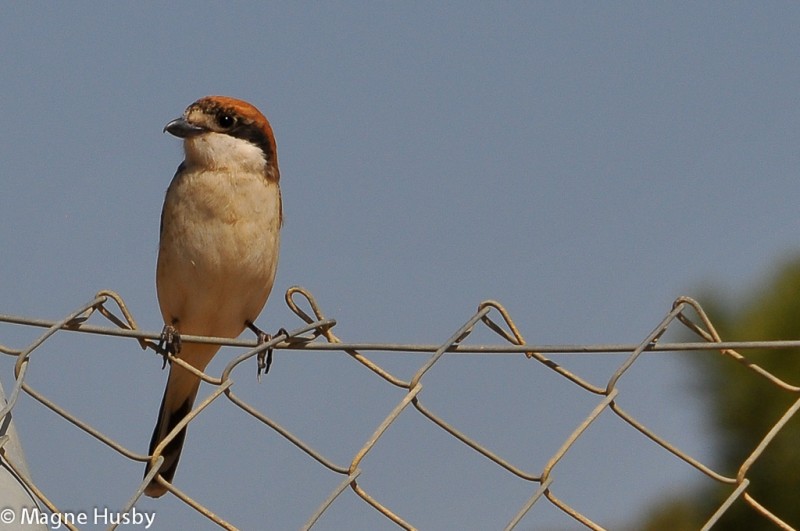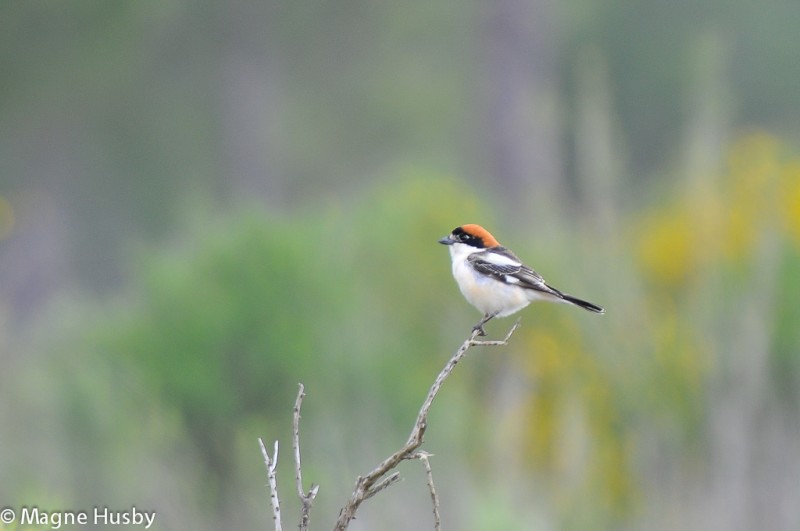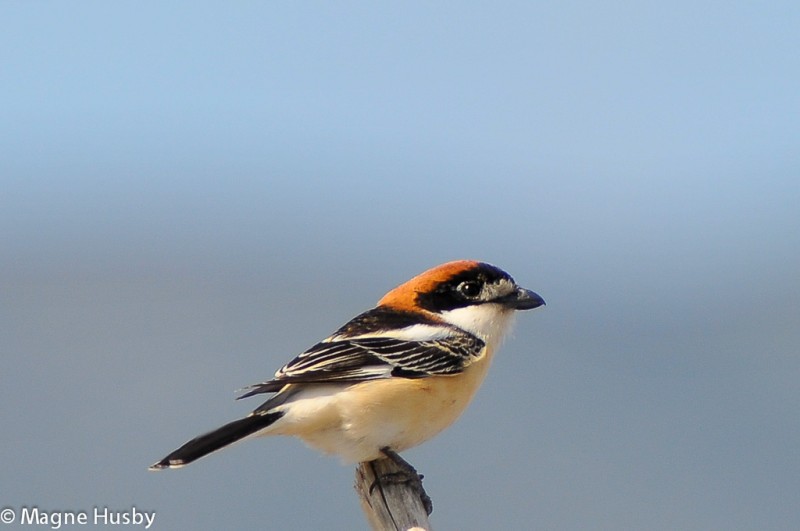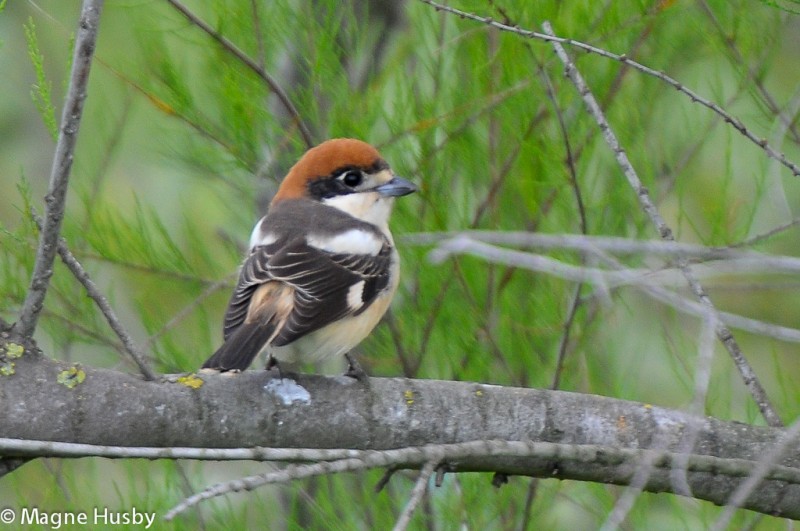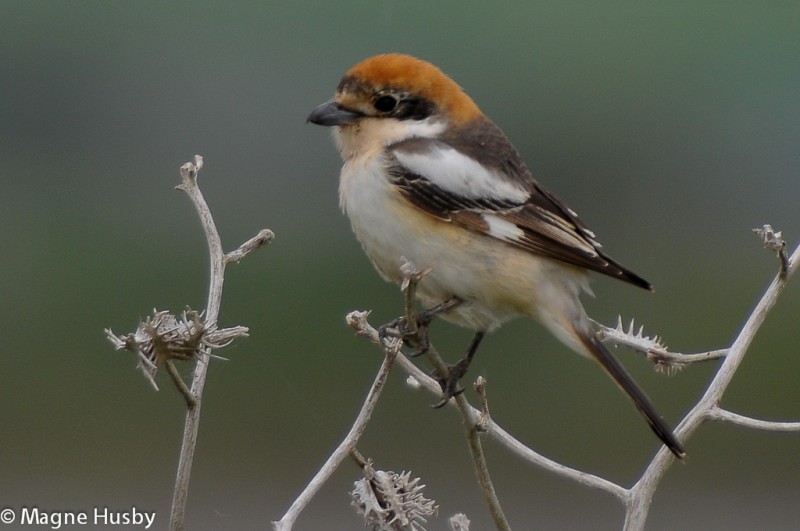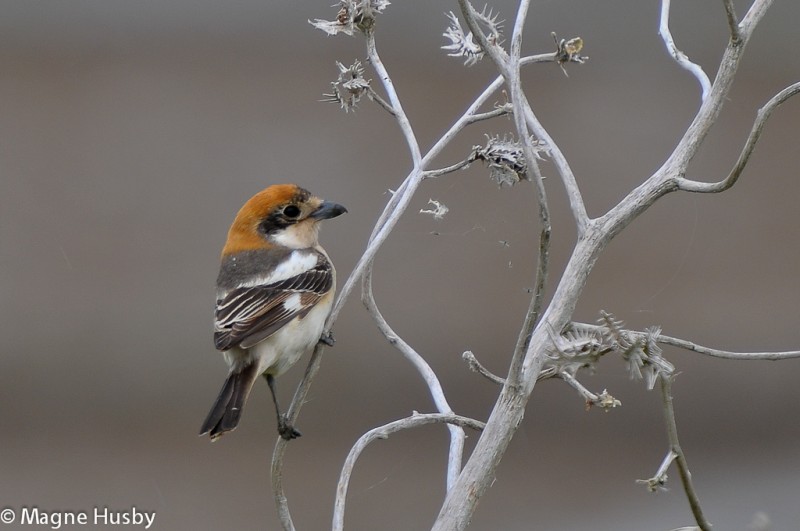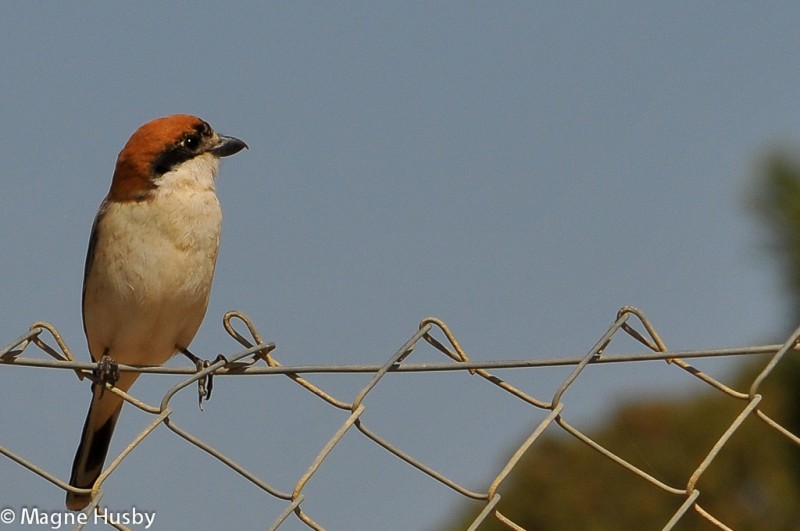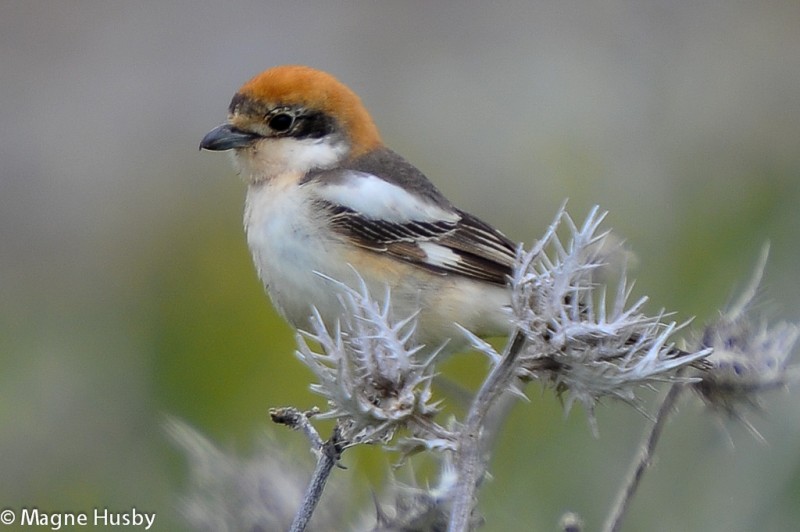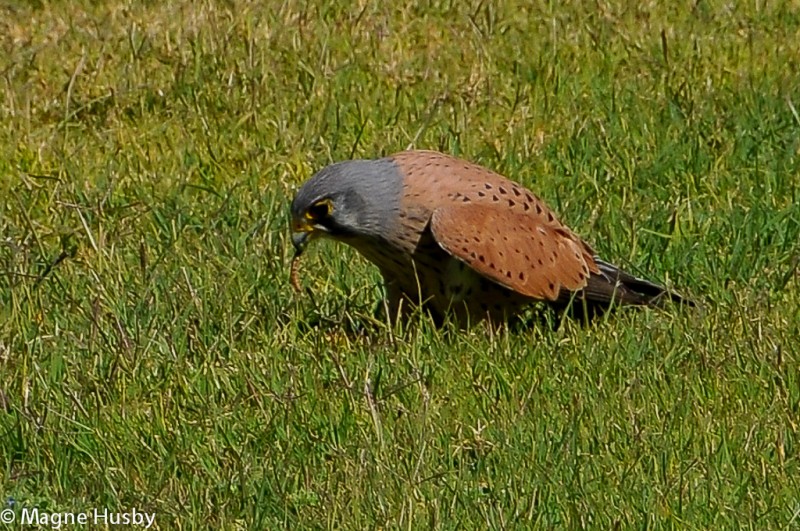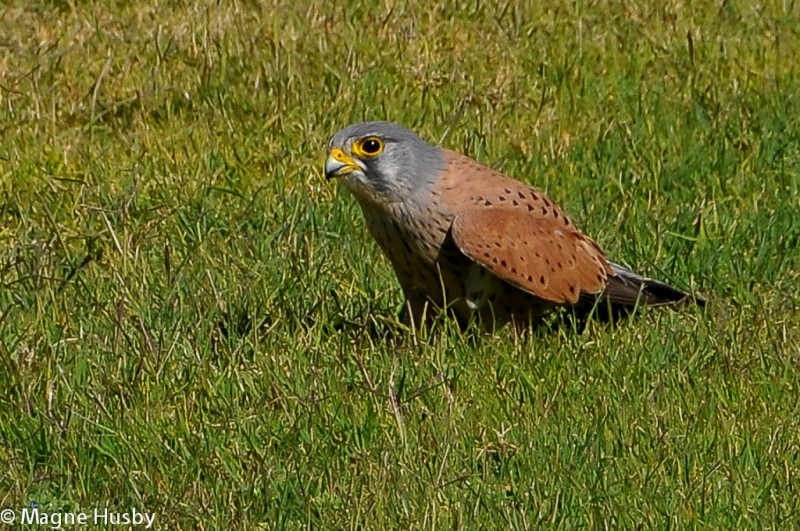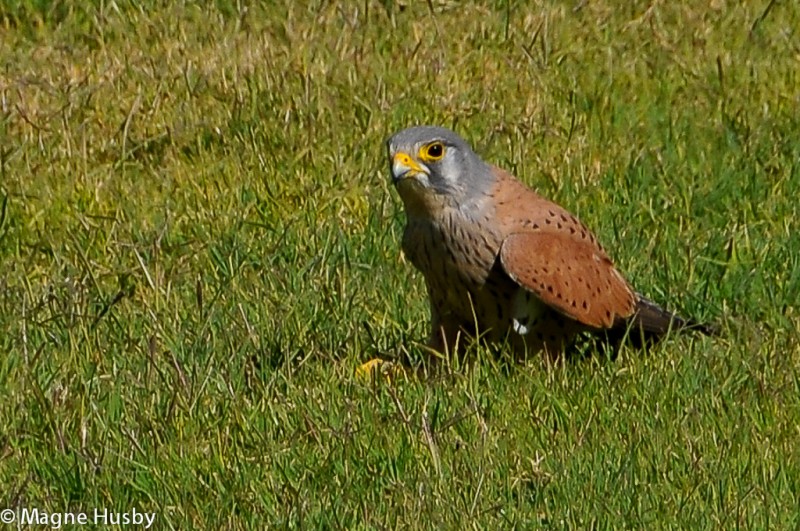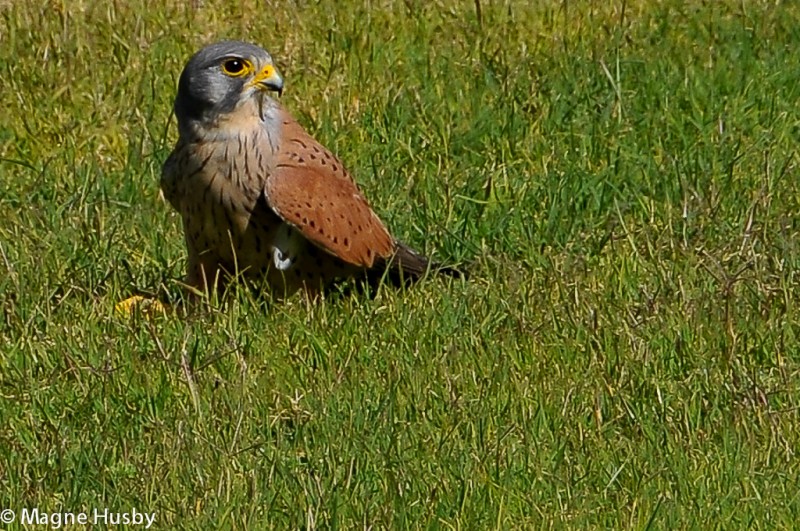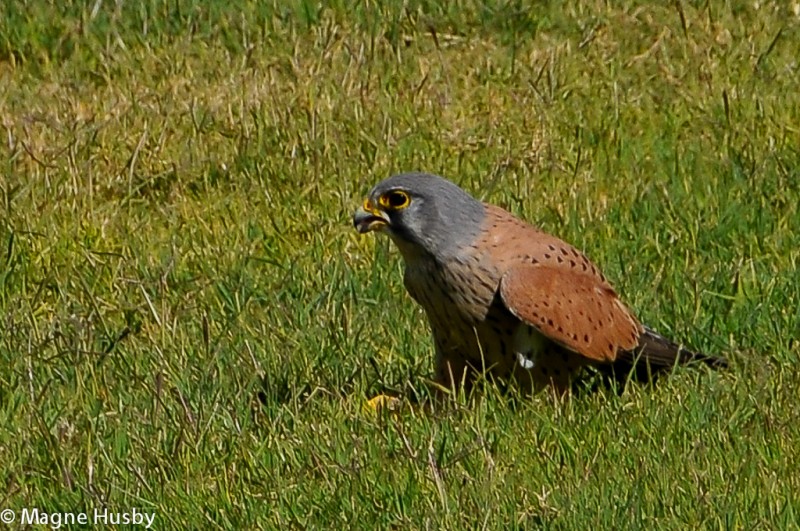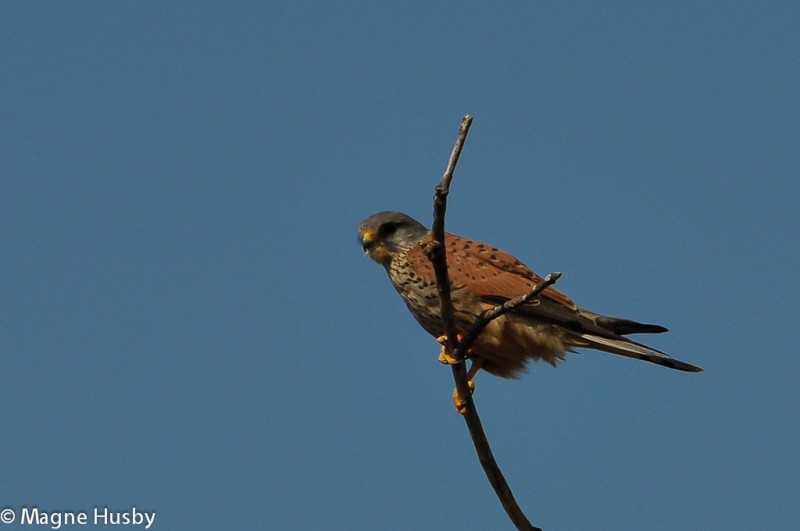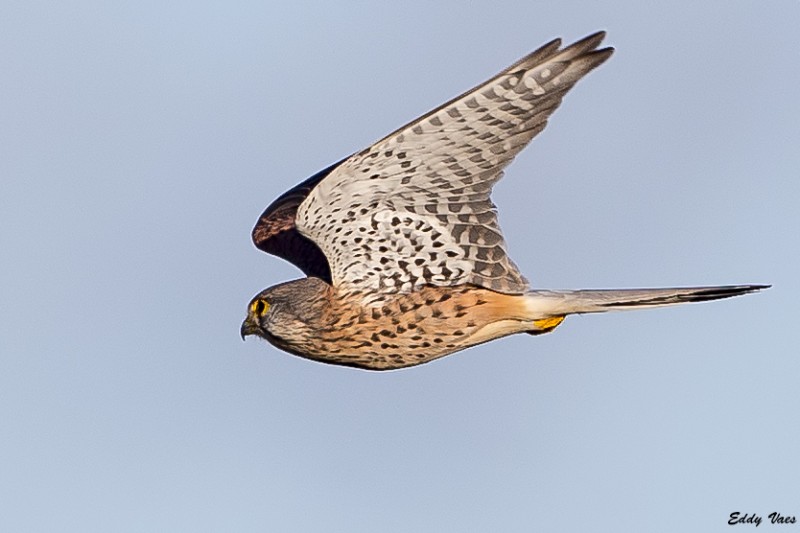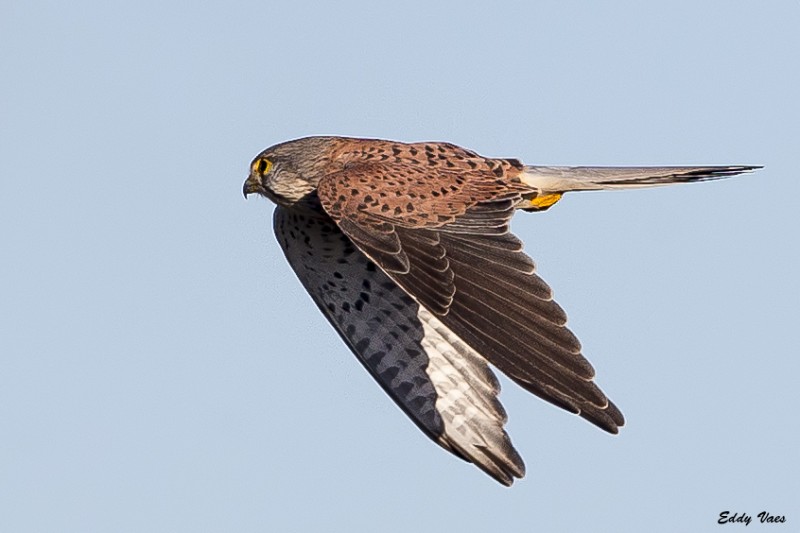Woodchat Shrike (Lanius senator)
Kestrel (Falco tinnunculus)
Adults easily recognized by rufous cap, black back, white scapular patches and white rump. Appears more compact and bigger headed than Red-backed and Lesser Grey Shrike. White spot at base of bill larger in female than in male. Immatures told from Red-backed Shrike by whitish scapulars, greyer upperparts, diffuse patch at base of primaries, pale rump and dark brown tail. Young birds may also be confused with Masked shrike, but note less contrasting primary patch, darker forehead, browner upperparts and wings, pale rump, shorter tail and deeper bill. Subspecies L. s. badius lacks primary patch. More skulking than many shrikes. Likes high viewpoints.
Sound:Alarm call a dry, magpie-like "che-che-che-che-che", or a nasal, ascending oriole-like "weea". Territorial song loud and varied. Often repeats phrases and includes mimicry. Alternativ song a more continuous chattering with impressive mimicry similar to Red-backed and Lesser Grey Shrike, and difficult to separate from those.
Song:
Distribution:
Xeno-canto: map
Ecology:Birdlife ecology
Links:
Observation.org Latest observations
Image search Flickr NB! May give other species
CCCC-sound:Michele Peron, Licence,Link.
Medium sized falcon with long tail and long wings. Upperparts brick-red, underparts pale buff with dark speckles. Male; light grey head and tail. Female; brick-red head and tail. Both sexes with broad, black terminal tail-band visible on both sides. Evident, but diffuse moustache-stripe. Hovers more frequently than other raptors. Tail and wings gives a more rounded impression when soaring. Very similar to Lesser Kestrel.
Sound:Most common call a fast series of short, high-pitched "ke-ke-ke". Much less raucous than Merlin or Peregrine.
Call:
Distribution:
Xeno-canto: map
Ecology:Birdlife ecology
Links:
Observation.org Latest observations
Image search Flickr NB! May give other species
CCSounds:Recorded by Francesco Sottile,http://www.xeno-canto.org ,CC license

 English
English Albanian
Albanian
 Armenian
Armenian
 Bulgarian
Bulgarian
 Catalan
Catalan
 Croatian
Croatian
 Czech
Czech
 Danish
Danish
 Dutch
Dutch
 Finnish
Finnish
 French
French
 Georgian
Georgian
 German
German
 Greek
Greek
 Hungarian
Hungarian
 Italian
Italian
 Latvian
Latvian
 Lithuanian
Lithuanian
 Macedonian
Macedonian
 Norwegian
Norwegian
 Polish
Polish
 Portuguese
Portuguese
 Romanian
Romanian
 Russian
Russian
 Sami : Lule sami
Sami : Lule sami
 Sami : North sami
Sami : North sami
 Sami : South sami
Sami : South sami
 Scientific names
Scientific names
 Serbian
Serbian
 Spanish
Spanish
 Swedish
Swedish
 Ukrainian
Ukrainian


